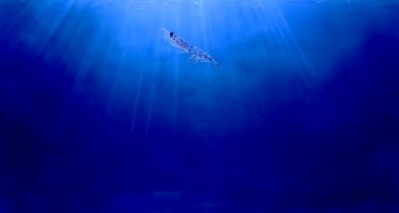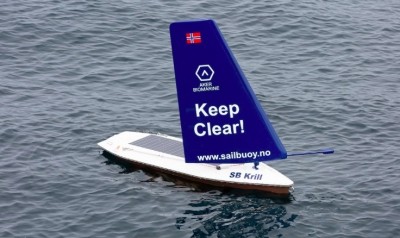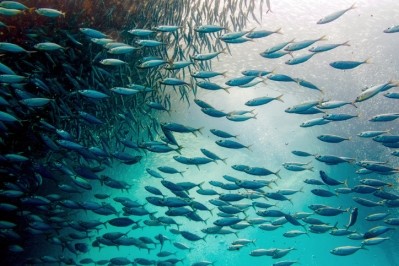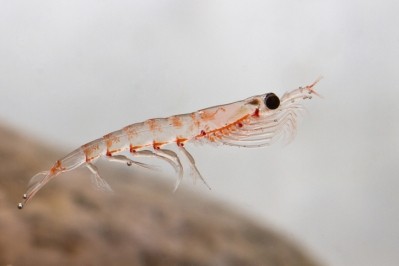Editor's Spotlight
Aker brings more NGOs into fold to bolster sustainability message
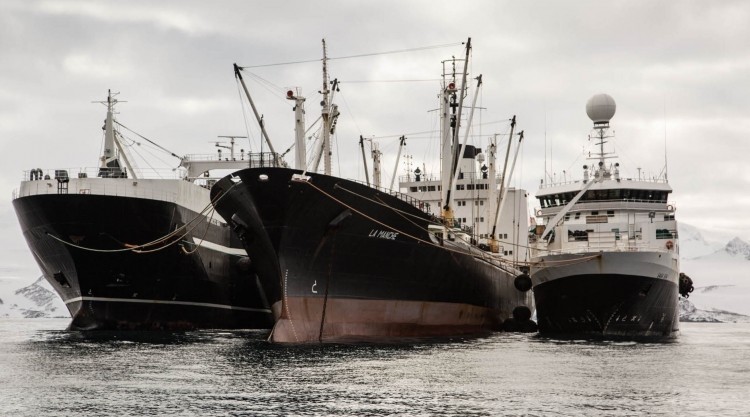
At the recent SupplySide West trade show, Aker officials along with Nikki Bransome, a Pew Charitable Trusts official whose title is, Officer, Protecting Antarctica’s Southern Ocean, laid out the company’s latest efforts on supporting sustainability of the krill harvest.
Work on Antarctic Marine Protected Areas
For a number of year The Pew Charitable Trusts has been advocating in favor of Marine Protected Areas in the waters of the Southern Ocean surrounding the Antarctic continent. This includes proposals for expansive new MPAs as well as the expansion of existing ones, most of which are centered on archipelagos or individual islands.
The idea behind MPAs is that only by placing some areas completely off limits can the health of the entire local ecosystem be ensured. It’s a fundamentally different concept to trying to come up with guidelines for the sustainable harvesting of a certain area.
Research on the long term impact of MPAs on the surrounding environment is still in its infancy. But early evidence indicates that MPAs can serve as nurseries for the restocking of species numbers outside the MPA. And according to an Australian government report, they can serve an important function as a place where baseline data can be gathered to judge the impacts of fishing operations in adjacent areas as well as trying to get a handle on the effects of climate change on the oceans as a whole.
Antarctic ecosystem health is on the clock
Bransome said that with more and more evidence accruing about the effects of climate change, the clocking is ticking for the world’s environment. And nowhere does it tick faster than in Antarctica.
“Antarctica, and in particular where the krill fishery is centered near the Antarctic Peninsula, is one of the quickest warming places on the planet,” Bransome told NutraIngredients-USA.
“We have seen evidence of melting sea ice and melting glaciers,” she said. “We have seen evidence of the krill shifting their distribution south because of a warming ocean. But once they hit the Antarctic continent, they don’t have anywhere else to go.”
“Penguins are also being particularly affected by climate change and the changes in the sea ice,” she said.
Penguins in peril
A report from earlier this year showed that for the third year in a row, the second largest breeding site for the Emperor Penguin, the world’s largest species, has produced no chicks. The species has evolved to a complicated breeding strategy in which chicks hatch on the ice in the austral fall and mature gathered in huge creches through the depths of world’s harshest winter conditions. The following summer as they reach the stage when they can forage for their own food in the ocean, the sea ice has edge has retreated to the point where it’s a short jaunt to open water. Now the sea ice in the area is breaking up earlier in unpredictable ways, which has halted breeding at the site.
Matts Johansen, CEO of Oslo, Norway-based Aker BioMarine, which is now the world’s largest harvester of krill by a large margin, said it was decided almost from the beginning that partnering with environmental organizations was the only way for Aker to prosper in the business. Aker has been involved with the krill fishery for more than a decade, and now operates a small fleet of the most up to date harvesting and support vessels.
Commitment to research part of company’s DNA
Early on, he said, Aker cooperated with and helped fund the activities of the World Wildlife Fund Norway chapter, which, because of the country’s location and history, has always had a strong interest in sustainable fisheries management.
Somewhat later, the company helped bankroll the foundation of the Antarctic Wildlife Research Fund. The aim of the fund is to broaden and deepen the field of krill research.
“This goes along with a lot of the challenges we all are facing,” Johansen said. “We have known from day one about being responsible industry and contributing to getting to know more about the Antarctic environment.”
“We make two grants every year research teams or to a university group. We want to know what is happening and how fast it’s going,” he said.
The company’s latest vessel, which was commission less than a year ago, includes on of the most well equipped onboard laboratories ever deployed to Antarctica. A significant amount of time in that laboratory is made available to researchers, Johansen said.
“Scientists spend 80% of budget on logistics,” he said. “We can help with that. In our vessel we will give that to the scientists for free.”
Johansen also claimed that in addition to the free research time and the cooperation with Pew, Aker has also been of its own volition avoiding harvesting in some of the areas that have been proposed as future MAPs.
Getting enough data
Nils Hoem, PhD, chief scientist for Aker, said the next big challenges will be to do a more thorough population assessment for the krill biomass. Even with the research the company has done with its own vessels combined with data gathered by other researchers, it is still akin to looking through a knothole in the fence of a baseball park and trying to count the fans in the stands.
The company has successfully tested an autonomous sail drone that can gather sonar data for months on end. The data from the sonar surveys can manipulated via statistical techniques to give a fairly good picture of the krill biomass, provided there are enough transects to work with, Hoem said. The company eventually hopes to have dozens of the drones, which cost almost nothing to operate when compared to the costs of a ship, plying Antarctic waters in the coming years.
“It’s a very thin data stream we have working with in the past,” he said.
Hoem said the drones could also help gather local data on ocean chemistry, which could become critical in the years ahead as more and more carbon dioxide is absorbed by the world’s oceans.
“The most recent reports show the krill’s resiliency in the face of ocean acidification,” Hoem said. But it’s an open question to what the limits of that resiliency might be.
Efforts recognized
Lisa Miller, US communications director for Aker, noted that for the fifth year in a row, Aker BioMarine received an ‘A’ rating from the Sustainable Fisheries Partnership (SFP), meaning its krill fishery is in “very good condition.” The Sustainable Fisheries Partnership (SFP) is a dynamic, business-focused NGO helping to reshape the world of corporate responsibility including methodology that allows companies to directly engage with suppliers of natural resources. Each year, the SFP releases a Reduction Fisheries Sustainability Overview which analyzes reduction fishery stocks worldwide.
